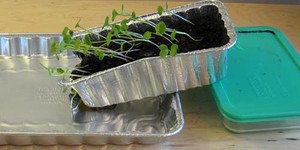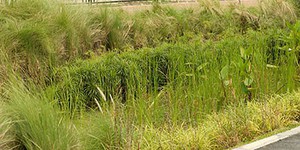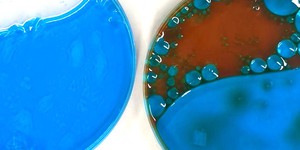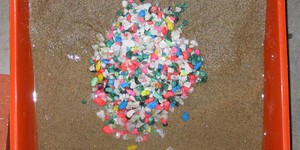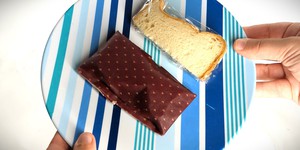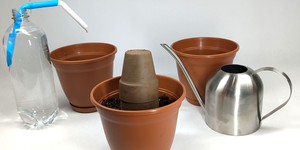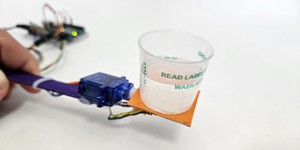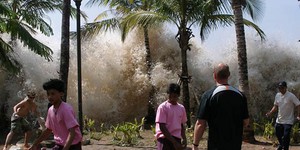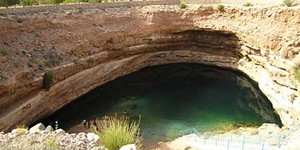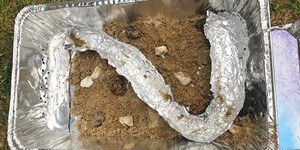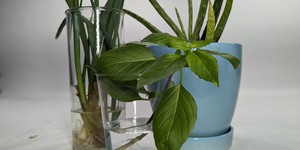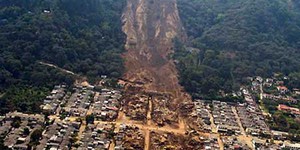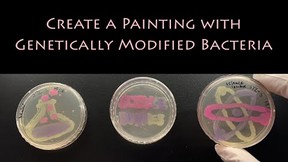Sustainable Cities and Communities, Elementary School Science Projects (25 results)
The United Nations Sustainable Development Goals (UNSDGs) are a blueprint to achieve a better and more sustainable future for all.
These projects explore topics key to Sustainable Cities and Communities: Make cities inclusive, safe, resilient and sustainable.
These projects explore topics key to Sustainable Cities and Communities: Make cities inclusive, safe, resilient and sustainable.
Science Buddies' elementary school science projects are the perfect way for elementary school students to have fun exploring science, technology, engineering, and math (STEM). Our elementary school projects are written and tested by scientists and are specifically created for use by students in the elementary school grades. Students can choose to follow the science experiment as written or put their own spin on the project.
For a personalized list of science projects, elementary schoolers can use the Science Buddies Topic Selection Wizard. The wizard asks students to respond to a series of simple statements and then uses their answers to recommend age-appropriate projects that fit their interests.
|
Select a resource
Filter by
Coding Projects
Sort by
|
Soil erosion can cost the world billions of dollars every year by washing pollutants into our streams and rivers and by causing the loss of farmland. What can you do about this problem? Help save the world (and some money!) with nothing more than a few plants!
Read more
What looks pretty, stops flooding, and helps fight pollution? A rain garden! Find out how by building and testing your own miniature rain garden in a plastic bottle.
Read more
New
Have you ever walked next to your favorite ocean, lake, or creek and seen plastic waste everywhere? Have you ever thought about how much plastic breaks down into microplastics and pollutes waterways? Scientists are coming up with new ways to remove these microplastics from our waterways, and now you can test them out for yourself at home.
Read more
A day at the beach is a wonderful way to spend time with your family and friends. You can swim, play games, and build sand castles. But have you ever thought about how all of that sand got there and wondered why the shoreline weaves in and out of the ocean? In this science project, you will investigate how ocean waves build beaches by making a model of the beach and shoreline. All you need is a tiny surfer and a beach volleyball court for your model, and you can imagine that you are in…
Read more
Do you ever use plastic wrap to cover a container? Did you know that it is made of plastic, which significantly contributes to the amount of waste in our landfills? There are many alternatives to plastic, and one popular product is beeswax wraps. Are beeswax wraps a suitable replacement for plastic wrap? Find out in this experiment!
Read more
With heat waves impacting the world globally, many gardeners, farmers, and scientists are turning to passive irrigation systems that reduce fossil fuel emissions while keeping plants well-watered and alive in the sweltering heat. In this science experiment, you will compare and contrast the effectiveness of passive irrigation systems compared to traditional surface irrigation systems and their impact on overall plant growth.
Read more
New
Have you ever seen a waiter balance an entire tray of drinks without spilling any? How do they do it? Do you think you could build a robot waiter that can do the same thing? In this project, you will learn how to build a self-balancing robotic tray. You can incorporate the auto-leveling tray into one of our many other robotics projects, like the Bluebot or robotic arm.
Read more
A tsunami is a series of waves made in a body of water, like the ocean, that can cause serious destruction when they hit the coastline. In deep water, a wave can be just a few feet high and travel very fast. As it nears the coastline, and moves into shallower water, tsunamis usually slow down, but the wave height can grow to 100 feet! In this ocean science project, you will model a tsunami and investigate how wave velocity (speed) depends on water depth. Does it match the mathematical equation…
Read more
If you have ever prepared a cup of coffee or tea with sugar, you have probably seen that the grains of sugar quickly dissolve and completely disappear in hot water. But sugar is not the only type of solid that can readily dissolve in a liquid. In fact, there are some types of rocks that can be dissolved by common liquids. It might be hard to imagine large, hard rocks being eaten away by some ordinary fluids, right? But it actually happens all the time! In this geology science project, you will…
Read more
Have you ever seen a river from far above? It is fascinating how they carve their way through the landscape. But what makes the water in a river flow? Where does a river start and end? And why is it that rivers usually have lots of turns or bends and almost never flow straight? In this science project, you will make river models using aluminum foil and water to explore how water flow inside a river changes based on its shape.
Read more
Have you ever picked a flower and tried to make it stay alive in a cup of water? How long does that last? Do some flowers last longer than others? Why do you think that is? In this experiment, you will compare different plants to see which ones can regrow or regenerate after damage and learn why some plants are better at it than others.
Read more
Landslides are powerful geological events that happen suddenly, causing fear in people who live in areas with unstable hills, slopes, and cliff sides. Landslides damage the surrounding habitat and can destroy homes in their path. But what causes landslides? Can slides happen on any slope, or do slopes have to have certain characteristics, such as a steep angle and a specific material mass? In this geology science project, you will learn about the different types of landslides and the…
Read more
|

